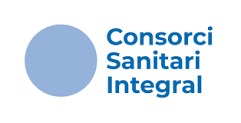Master’s Degree in Foot and Ankle Pathology and Surgery
Prospective students
Holders of an undergraduate degree in Medicine and Surgery specialised in Orthopaedic Surgery and Traumatology.
Specific training in foot and ankle pathology is necessary to respond to the needs of our patients.
In the space of a few years, we have gone from having two or three techniques for resolving 95% of all forefoot conditions to the over 200 procedures we currently have.
Hallux valgus, hallux rigidus and metatarsalgia, flat feet, high arches and ankle arthropathy are just the tip of the iceberg.
Progress is fast and new technologies are putting specific, better developed and highly resolutive tools into expert hands. Techniques such as arthroscopy, osteotomies, major corrections and prosthetic surgery require specific training.
In efforts to meet current challenges, we need progressive, regulated training based on scientific knowledge and the experience of accredited food and ankle practitioners.
The Integrated Health Consortium, with its comprehensive portfolio of foot and ankle services, and UIC Barcelona have developed an ambitious specific training programme: the Master’s Degree in Foot and Ankle Pathology and Surgery.
Partner

Presentation
Objectives
General objectives
To acquire the theoretical knowledge and develop the clinical and surgical skills necessary to work autonomously in the subspecialty of foot and ankle pathology, along with training in ethics, research and management.
Specific objectives
- To acquire a high level of knowledge in foot and ankle pathology grounded in evidence-based medicine and clinical practice.
- To incorporate into professional practice correct praxis with regards to foot and ankle pathology and surgery.
- To learn how to apply the subspecialty of foot and ankle pathology as part of a multidisciplinary and coordinated team and with expert professionals, in a climate of mutual respect and cooperation that promotes the exchange of knowledge, creativity and innovation.
- To foster a good doctor-patient relationship based on respect and individual attention for the patient and his or her support system: to be a good professional, accessible, friendly, available and at the cutting-edge of the subspecialty.
- To learn the basic principles of bioethics and how they apply to professional practice.
- To base the diagnostic approach on the patient’s medical records and physical exploration.
- To gain detailed knowledge and hands-on experience with the diagnostic and therapeutic tools intrinsic to foot and ankle pathology.
- To gain a mastery of all surgical techniques necessary to resolve all foot and ankle conditions.
- To gain training in the clinical management of a foot and ankle unit: waiting lists, first and subsequent visits, surgical planning, delays, complaints, etc.
- To learn how to manage multi-professional foot and ankle units made up of traumatologists, nurses, podiatrists, endocrinologists, geriatrics specialists, anaesthesiologists, internal and infectious medicine specialists and social workers.
- To develop, encourage and foster a commitment to the dissemination of knowledge, teaching and continuing education.
- To develop a clinical research method.
Prerequisites & admissions
Access criteria and special entry requirements or examinations:
1. Qualifications required:
- Holder of an undergraduate degree in Medicine and Surgery.
- Qualified specialist in Orthopaedic Surgery and Traumatology.
2. Curriculum Vitae, with information on:
- Papers and presentations
- Publications
- Research experience
- Awards
- Grants
- Extracurricular activities
3. Personal project:
- Explanation of the reasons for applying to and interest in the training programme, and professional aspirations.
- Availability to study on an exclusive, full-time basis.
- Availability to start on the set date and complete the course in its entirety.
4. Report and letters of recommendation corresponding to the applicant’s period of specialised training in Orthopaedic Surgery and Traumatology.
5. Personal interview, in which the candidate will be assessed on:
- Specific knowledge of the subspecialty
- Prior clinical experience
- Doctoral thesis and experience in basic and/or clinical research
- Participation in and the presentation of papers at congresses and other scientific events
- Personal profile: creativity, initiative, desire to learn, empathy, responsiveness
Admissions body
The committee is made up of:
- Master’s programme directors and coordinators
- Head of Studies, Integrated Health Consortium - Teaching Committee
- Head of the Orthopaedic Surgery and Traumatology Department, Integrated Health Consortium - Medical director.
- Manager, Integrated Health Consortium
Application for admission
·Required documentation
Students with an official university degree from a European Union country
- A photocopy of your degree certificate (or receipt of payment of the fees required to issue the degree certificate).
- A photocopy of your academic transcripts from past university studies.
*If the documents are in a language other than Spanish, Catalan, English, French or Italian, please submit a sworn Spanish translation of your degree certificate and academic transcript.
Students with an official university degree from a non-European Union country
- An original legalised photocopy of your university degree certificate.
- An original legalised photocopy of your academic transcripts from past university studies.
*These documents must be legalised in your home country through diplomatic channels: Hague Apostille or Andrés Bello Convention.
*If the documents are in a language other than Spanish, Catalan, English, French or Italian, please submit a sworn Spanish translation of your degree certificate and academic transcript.
In all cases:
- Two passport-sized photographs.
- A photocopy of your national ID card (DNI) or passport.
- An updated CV.
Reservation and enrolment
Any students who are admitted into the master’s programme after the selection period has ended must enrol at the secretary’s office of the Faculty of Medicine on the Sant Cugat Campus, at the following address:
Contact
Anna Serra
aserra@uic.es
Sant Cugat Campus
Josep Trueta, s/n
08195, Sant Cugat del Vallès
Tel. (+34) 93 504 20 00